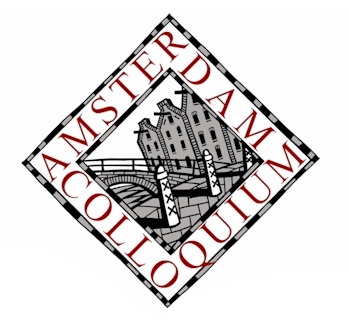Workshops
In addition to the general programme, the 23rd Amsterdam Colloquium will feature two workshops: one on Biases in Language and Cognition and one on Compositional Approaches to Projection.
Compositional Approaches to Projection
- Reinhard Muskens (ILLC, University of Amsterdam)
- Tom Roberts (ILLC, University of Amsterdam)
- Émile Enguehard (ILLC, University of Amsterdam)
Recently, in research on linguistic meaning, there has been considerable interest in content which projects (i.e., is not at-issue) and how it interacts with at-issue content. This workshop aims to bring together researchers approaching this topic from a compositional perspective: How should projective material be handled in formal compositional frameworks, and integrated with at-issue content? Possible research topics include (but are not limited to) presupposition, expressive content, conventional implicatures, parentheticals, evidentiality, and lexical semantics.
Biases in Language and Cognition
- Marieke Schouwstra (ILLC, University of Amsterdam)
- Katrin Schulz (ILLC, University of Amsterdam)
There are many different types of cognitive biases that influence our behaviour: from learning biases and memory biases, to processing effects. These biases can influence language mainly in two ways. On the one hand, cognitive biases are often invoked to explain the structure of our languages. One the other hand, biases in our beliefs also influence what we communicate and how interpret utterances.
In this workshop we want to study the different ways cognitive biases affect language and language use. How exactly can biases in individuals be linked to the structures we observe in existing languages? How can biases be 'read off' linguistic structure? As for interpretation, how does bias affect meaning, in particular the meaning of expressions we use to communicate generalisations (generics, habituals)? How should we understand the semantics of these constructions in the first place?
We welcome submissions that connect biases and linguistic patterns. We aim to bring together linguists, philosophers, and cognitive scientists to present empirical/experimental, conceptual, evolutionary, or formal/computational work, or any combination of those.

